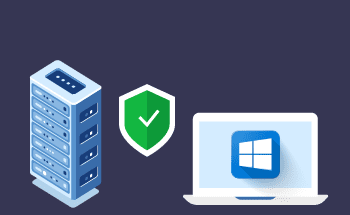Colocation or managed hosting
11:54, 11.09.2017
If you have heard a term “colocation”, but don't know exactly what it is and what it has to do with using a server for your commercial needs, this article will give you some basic clues to start with.
Colocation can be interpreted as placing your own server in a rack along with other servers located in a facility with special conditions.
Now let’s get into details. What actually are the special conditions? Obviously, it’s all about parameters, which are vital for your server, for example:
- temperature, humidity, vibration;
- quality and reliability of the power supply.
Only to maintain these few features listed above at desirable level at your premises you will need to arrange the following:
- compartment for server(s);
- service personal;
- power source.
All these take money and time, not to mention that every storm or your chief electrician's vacation can become a problem for your computer system running smooth and nicely. So how to host your own server and stop worrying about it?
A possible solution is to put your hardware in a data center. It is a place, where you can find perfect environment conditions for your device and even more.
Data centers are specially designed and equipped buildings for placing servers and network equipment. Their main features are:
- fully controlled air conditioning systems;
- normalized redundant power supply;
- security system with authorized access;
- reliable high-speed Internet connection;
- recovery and emergency arrangements;
Data center. Server room
We will not itemize all the possibilities of the data centers, the idea was just to show you the place where you can keep your server.
Let’s move on. Everything has its pluses and minuses. Here are colocation's Pros:
- you don’t have to own a place (and all the needed facilities) for running a server;
- cost of the bandwidth – in most cases you won’t find a better balanced price/quality Internet access solution;
- security, reliability – just what you need for example to back up your critical data;
- ideal for complex issues involving few servers working together (load balancing, hardware redundancy, etc.)
and Cons:
- physical access for you only is a great security measure, but in some cases with a data center located miles away from you, it can become an issue to get something done promptly with your server;
- high upfront costs compared to standard managed hosting fees.
But why to bother asking yourself how to host your own server at all and maybe managed hosting is the best choice ever? Considering all the pros and cons listed above and assuming that you are already aware of all the managed hosting’s benefits, we can draw a line and find out the core difference between colocation and managed hosting – and that is server's ownership and all what comes with it.
With managed hosting you do not own a server, so you won’t bother with maintenance, but in some cases it is nearly impossible to adapt a leased server to all your specific needs. On the other hand with a colocation you are the master and the sky is a limit, but you will have to manage your device by yourself or spend some extra money (on data centers' additional service offers).
Let's summarize! If you are still wondering about how to host a server and should you go for colocation, try to answer the following questions:
- Do you want to use outsourced services for placing and running a server?
- Do you have critical data on your server(s) and reliability is your number one?
- Do you have special tasks, which cannot be solved with managed hosting?
If all or at least one answer to these questions is yes, then you must try colocation!


